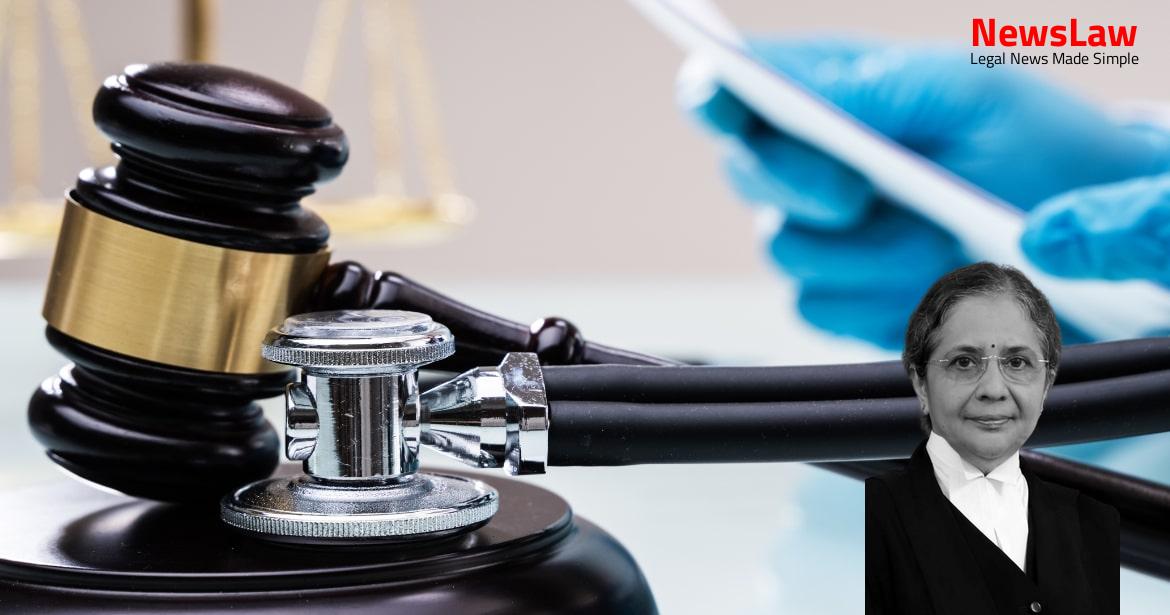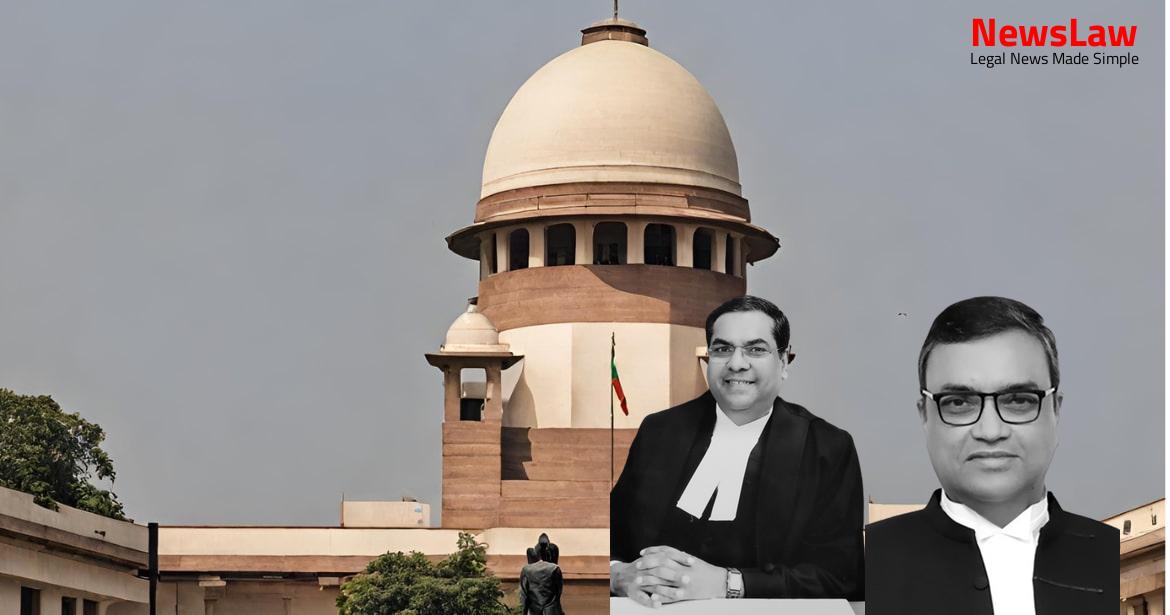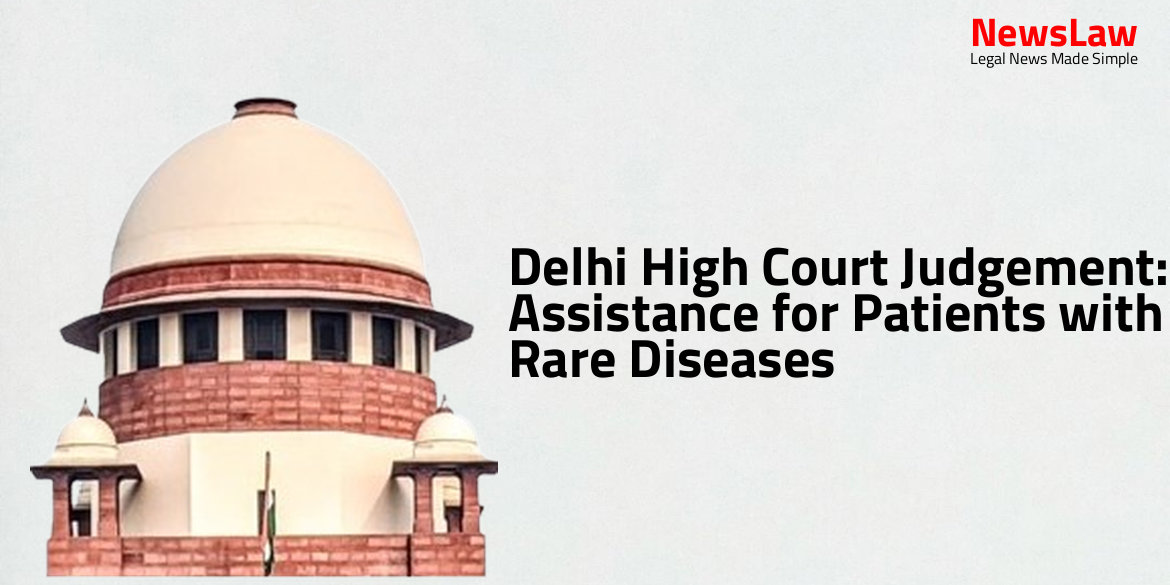The instant appeals are directed against the judgment dated 3 February, 2021 passed by the Division Bench of the High Court of Orissa at Cuttack setting aside Order dated 11 December, 2020 passed by the Odisha Lokayukta initiating to conduct a preliminary inquiry in exercise of power conferred under Section 20(1) of the Odisha Lokayukta Act, 2014(hereinafter being referred to as the “Act 2014”) on a complaint dated 9 December, 2020 received from Mr.Ranjan Kumar Das, Deputy Superintendent of Police, Vigilance Cell Unit, Bhubaneswar indicating the alleged corruption against respondent no.
Also Read: https://newslaw.in/case-type/civil/regularization-of-village-level-workers-in-tamil-nadu/
The Odisha Lokayukta, after taking into consideration the contents of the complaint and the supporting documents annexed thereto, in exercise of power conferred under Section 20(1) of the Act, 2014 directed the Directorate of Vigilance, Odisha, Cuttack to conduct a preliminary inquiry against respondent no. Although the Office of Lokayukta was impleaded as one of respondent before the High Court but as informed to this Court, no notice was issued to them and on the first date of hearing, without even affording opportunity of hearing to the appellant to submit their written response, the Division Bench of the High Court under Order dated 3 February, 2021 proceeded on the premise that entrusting Directorate of Vigilance to conduct preliminary inquiry is not in terms of the mandate of Section 20(1) and set aside the Order dated 11 December, 2020 with a liberty to the Lokayukta to conduct preliminary inquiry, if so advised, against respondent no. Learned counsel for the appellant submits that the order impugned dated 3 February, 2021 is in violation of the principles of nature justice and the finding has been recorded without affording an opportunity of hearing to the appellant and that apart, it is not in conformity with the mandate of Section 20(1) of the Act 2014. If the relevant provisions of the Act are being looked into, particularly Chapter VIII of the Act 2014, any agency as referred to under Section 25 includes the State Vigilance and Crime Branch for the purpose of conducting preliminary inquiry or investigation, as the case may be, and that is further strengthened by the procedure for conducting a preliminary inquiry or investigation envisaged under Section 28 wherein it is open for the Lokayukta to conduct preliminary inquiry or investigation through the agency of the Government. Chapter VIII prescribes not only the purpose of conducting preliminary inquiry and investigation but also in reaching to a final conclusion even at the stage of registering of the charge-sheet as referred to under Section 20(8) of the Act, 2014. The Officer of the Department has made a complaint on 9 December, 2020 and other officer is called upon to conduct a preliminary inquiry as stated that one cannot be a judge in its own cause and that being the reason, the Division Bench of the High Court has permitted the Lokayukta to conduct an inquiry by the inquiry wing of the Lokayukta and administrative bias can’t be ruled out of the Directorate of Vigilance who is to conduct a preliminary inquiry.
Naik on 28 May, 2021 and after affording opportunity of hearing to the appellant, a detailed Order was passed by the Lokayukta under Section 20(3)(a) dated 27 September, 2021 directing the Directorate of Vigilance to carry out investigation. The Act, 2014 has been enacted by the legislature of the State of Odisha having been assented to by the President on the 16 January, 2015 with an object to provide for the establishment of the body of Lokayukta for the State of Odisha to inquire into allegations of corruption against public functionaries and for matters connected therewith or incidental thereto. Section 20 provides an inbuilt mechanism laying down the procedure to be followed in holding preliminary inquiry and investigation which the Lokayukta, in the facts and circumstances, on receipt of a complaint may decide – either order for conducting preliminary inquiry against the public servant by its inquiry wing or any agency to ascertain whether there exists a prima facie case for proceeding in the matter; or direct to hold an investigation by any agency or authority empowered under any law to investigate, to record its satisfaction whether there exists a prima facie case. Such report is placed before a Bench consisting of not less than three members of the Lokayukta to consider the same under sub-section (2) from the inquiry wing or any agency and after affording an opportunity of being heard to the public servant, may recommend to proceed with one or more of the actions as provided under Clauses (a), (b) or (c) of sub-section (3) to hold departmental action against the public servant.
Section 27 clarifies that for the purpose of any preliminary inquiry, the inquiry wing of the Lokayukta holds powers of a civil Court, under the Code of Civil Procedure, 1908 and any proceedings before the Lokayukta shall be deemed to be a judicial proceeding within the meaning of Section 193 of the Indian Penal Code, 1860. On the said complaint being received, the appellant directed the Directorate of Vigilance, Cuttack to conduct a preliminary inquiry against respondent no.1 in exercise of his power under Section 20(1) of the Act, 2014 by an order dated 11 December, 2020. The concept of natural justice, indeed, has undergone a change with the passage of time, but still the time- tested rules, namely, are (i) no one shall be a judge in his own case ( Nemo debet essse judex propria causa ) and (ii) no decision shall be given against a party without affording him a reasonable opportunity of hearing ( audi alteram partem ).
Even on merits, the Division Bench has completely overlooked Section 20(1) of the Act, 2014 that empowers the Lokayukta, on receipt of a complaint, obviously after recording satisfaction, in its discretion if intended to proceed and to hold any inquiry, can conduct either a preliminary inquiry against a public servant by its inquiry wing or any other agency to ascertain whether there exists a prima facie case for proceeding in the matter or hold investigation by any agency or authority empowered under any law to investigate whether there exists a prima facie case. At the same time, under Section 28, for the purpose of conducting any preliminary inquiry or investigation, it is open for the Lokayukta to utilize the services of any officer or organization or investigation agency of the Government and, in the circumstances, if the appellant in its judicious discretion and on the facts and circumstances of the case, conduct a preliminary inquiry through an agency of the Government of which reference has been made under Section 28 through the Directorate of Vigilance, Cuttack, there appears no legal infirmity being committed by the appellant in the decision-making process in conducting a preliminary inquiry which, in our view, was within the scope and ambit of Section 20(1) of the Act, 2014 and a manifest error was committed by the Division Bench of the High Court while setting aside the order of the appellant dated 11 December, 2020 to conduct an inquiry against respondent no.1. During the course of submissions made by the parties, it was informed that after the stay was granted by this Court of the judgment impugned dated 3 February, 2021, the appellant has proceeded in conducting further inquiry and actions are being taken after the Directorate of Vigilance has submitted a preliminary inquiry report to the Lokayukta under Section 20(3)(a) to carry out investigation and steps are taken by the Directorate of Vigilance in summitting a report of investigation before the appellant on 7 June, 2022. Still we leave it open to respondent no.1, if further action taken by the appellant is not in conformity with law, he is at liberty to initiate proceedings as admissible to him under the law.
So far as the objection raised by the respondents regarding the action of conducting preliminary inquiry being bias for the reason that the Deputy Superintendent of Police of the Directorate of Vigilance has submitted a complaint and the appellant directed the Directorate of Vigilance to conduct a preliminary inquiry by an order dated 11 December, 2020, which, in fact, was conducted by a senior officer of the Directorate of Vigliance i.e. The rule against bias ensures a fair procedure by excluding decision-makers who are tainted by bias. But then the very fact that he was a member of the selection board must have had its own impact on the decision of the selection board.
The real question is not whether he was biased.
What is objectionable in such a case is not that the decision is actually tainted with bias but that the circumstances are such as to create a reasonable apprehension in the mind of others that there is a likelihood of bias affecting the decision. It is appropriately extended to all cases where an independent mind has to be applied to arrive at a fair and just decision between the rival claims of parties.
Naqishbund who was a member of the Selection Board was also one of the candidates for selection to the Indian Forest Service. speaking on behalf of the Court countered the argument that Naqishbund did not take part in the deliberations of the Selection Board when his name was considered, by saying : “But then the very fact that he was a member of the Selection Board must have had its own impact on the decision of the Selection Board. Where reasonable likelihood of bias is alleged on the ground of relationship, the question would always be as to how close is the degree of relationship or in other words, is the nearness of relationship so great as to give rise to reasonable apprehension of bias on the part of the authority making the selection.” (emphasis added) 37.
Also Read: https://newslaw.in/case-type/civil/judgment-on-execution-of-lease-deed-for-remaining-land/
Naik, who submitted his report of the preliminary inquiry on 28 May, 2021, the question of bias in the instant facts and circumstances does not arise at all and that apart, the Constitution Bench of this Court recently in Mukesh Singh vs State (Narcotic Branch of Delhi), while examining the question as to whether in case investigation is conducted by the police officer who himself is a complainant is the trial stands vitiated and the accused is entitled to acquittal and after examining the scheme of the Code, finally answered the reference as under: “13.
Rajangam [(2010) 15 SCC 369] and the acquittal of the accused by this Court on the ground that as the informant and the investigator was the same, it has vitiated the trial and the accused is entitled to acquittal are to be treated to be confined to their own facts. State of Punjab [(2018) 17 SCC 627] and any other decision taking a contrary view that the informant cannot be the investigator and in such a case the accused is entitled to acquittal are not good law and they are specifically overruled.” (emphasis added) 38. In our considered view, the submission is wholly bereft of merit for the reason that the action of the appellant initiated pursuant to order dated 11 December, 2020 for conducting a preliminary inquiry in exercise of powers conferred under Section 20(1) of the Act, 2014 was a subject matter of challenge before the High Court at the instance of respondent no.1 and if that is being interfered with and the action of the appellant is being set aside under the impugned judgment dated 3 February, 2021, the appellant, indeed, was a person aggrieved and has a locus standi to question the action interfered with by the Division Bench of the High Court and the only remedy available with the appellant is to question the order of the Division Bench of the High Court by filing an special leave petition in this Court under Article 136 of the Constitution.
Case Title: OFFICE OF THE ODISHA LOKAYUKTA Vs. PRADEEP KUMAR PANIGRAHI (2023 INSC 154)
Case Number: C.A. No.-001384-001385 / 2023



